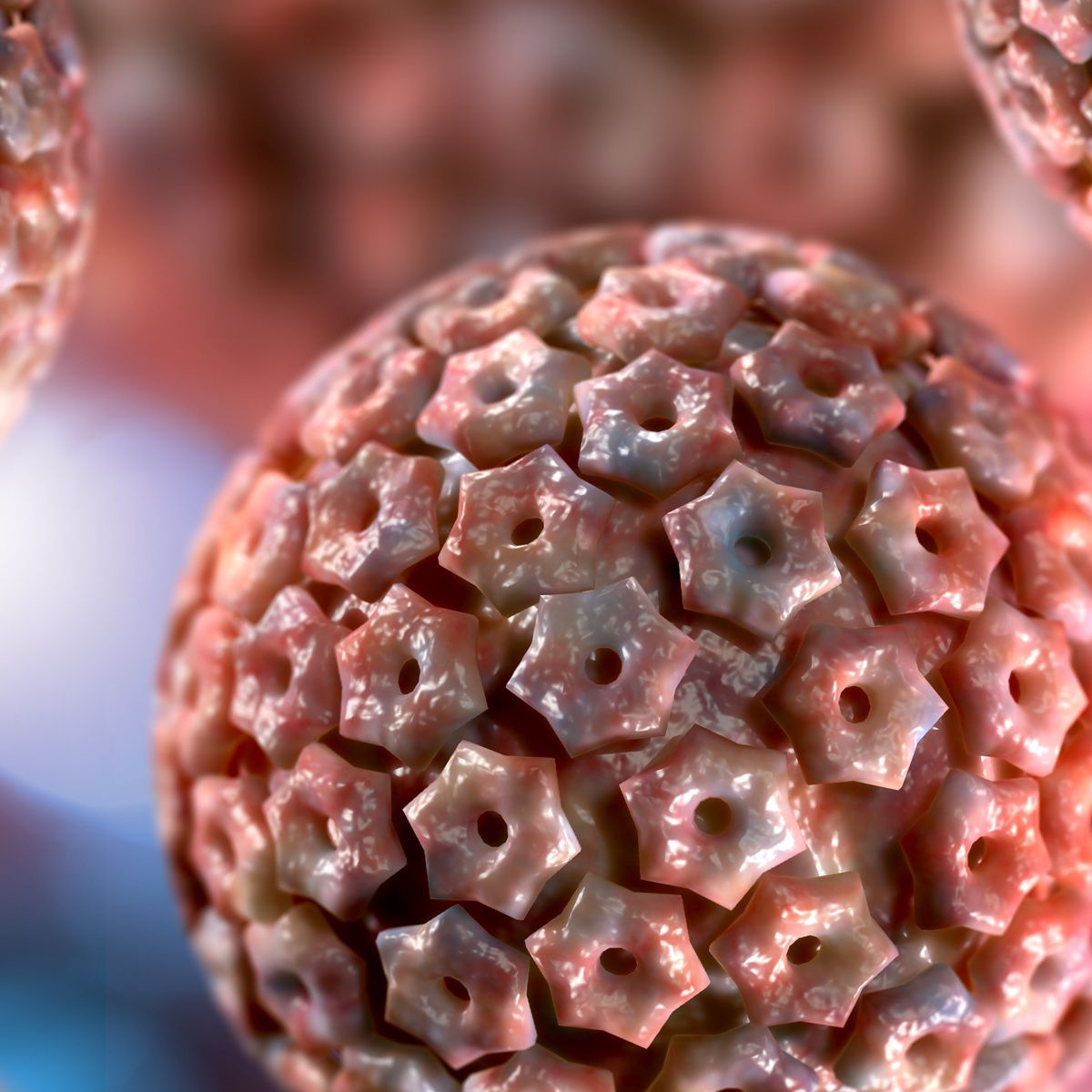
What is genital herpes?
Genital herpes is often called "intimate herpes", "penile herpes" or "vaginal herpes" in men and women.
This is a sexually transmitted disease that is triggered by viruses.
The herpes simplex virus, HSV for short, is responsible for this disease. It can be divided into type 1 and type 2. For the sexually transmitted disease, type 2 is responsible in most cases.
HSV type 1 is more likely to cause cold sores.
The World Health Organisation estimates that approximately 67% of those under 50 years of age have a genital or oral HSV-1 infection. It is estimated that 13 % of people between the ages of 15 and 49 are infected with HSV type 2. Women are affected by genital herpes twice as often as men. This is because transmission during sex, through smear infection, is much easier than in men.
How contagious is genital herpes?
Infected are mainly contagious when the viruses are excreted from the body . The more of them there are, the greater the risk of getting infected .
However, if the viruses are in a so-called dormant state, you cannot become infected. Only if there is a primary infection, or if the characteristic blisters form through a subsequent reactivation.
People can also have a latent infection, i.e. they do not show any symptoms, but are still contagious because the viruses are excreted. Especially in this case, the risk of passing on the viruses is high.
Since no symptoms are noticed, no precautions are taken to protect other people.
What are the symptoms of genital herpes?
If you are infected with the virus for the first time, the following symptoms usually appear after two to twelve days:
- The penis or vagina is swollen and red,
- Unpleasant itching and tingling in the genital area,
- Pain, stinging and burning sensation in the intimate area,
- Swelling of the lymph nodes in the groin area.
In
most cases, small painful
skin blisters appear after a few hours, filled with a purulent cloudy or transparent
fluid. These blisters are highly contagious because they contain
most of the viruses. Gradually, these skin blisters burst
open. This often leads to
skin damage, and sometimes painful ulcers develop. The following
accompanying symptoms occur during this phase:
- Pain when urinating,
- Inflammation of the vagina or glans,
Genital herpes is considered cured when the skin damage and blisters have completely disappeared.
The symptoms vary from case to case. However, it can be said that an initial infection is much more severe than a reactivation. In addition to the above-mentioned symptoms, in most cases there is also fever, general signs of illness and headache and pain in the limbs. Some sufferers have no symptoms at all or only mild symptoms.
It is difficult to estimate how long the disease will last. It can take between a few days and four weeks for genital herpes to disappear again. As a rule, however, the disease is cured after about two to three weeks.
What complications can occur with genital herpes?
Usually only the genitals are affected, i.e. the penis in men and the vulva and vagina in women. Occasionally, larger parts of the body can also be affected. Sometimes it can happen that the herpes spreads over the buttocks to the thighs and around the anus . Such transmission is especially possible through the corresponding sexual practices . Genital herpes can also develop in the area of the fingers .
How is genital herpes diagnosed?
Usually genital herpes is very easy to diagnose through the typical symptoms . However, a doctor cannot make an exact diagnosis based only on the anamnesis, because other diseases also make themselves felt through similar symptoms. In addition to the visual diagnosis, a doctor must order a laboratory examination in order to be able to make an exact and confirmed diagnosis . In the laboratory, an antibody test is usually carried out, which shows even the smallest virus components. In addition, the herpes viruses can also be cultured in the laboratory in order to determine them exactly.
How is genital herpes treated?
In the treatment of genital herpes, antiviral drugs are used. Basically, these all work almost identically. In most cases, they are prescribed by the doctor in the form of tablets. If the course of the disease is severe, the medication is also given via an infusion. These drugs weaken the symptoms and shorten the duration of the disease. Depending on where the affected area is located, ointments can be used. However, these are not suitable for the mucous membranes. For fever and pain, paracetamol or ibuprofen can be taken after consulting with the doctor.
What is the course of genital herpes?
As a rule, the infection is harmless and has no further complications. Especially if you have a first infection with genital herpes , it is advisable to see a doctor so that the diagnosis can be made at least once by a doctor. In addition, the medication for the therapy of herpes must be prescribed by the doctor. As with all other sexually transmitted diseases, it is important that the sexual partner is informed. The sexual partner should also be examined by a doctor. If you develop genital herpes during pregnancy or childbirth, it is essential to see a doctor .
How can genital herpes be prevented?
There is currently no vaccination against genital herpes. Infection with the viruses can be significantly reduced with condoms . During an acute outbreak of herpes, it is advisable to abstain completely from sexual intercourse, because condoms do not protect 100 per cent against transmission. It is also helpful to eat a healthy diet and support the immune system to avoid subsequent reactivations of genital herpes.
